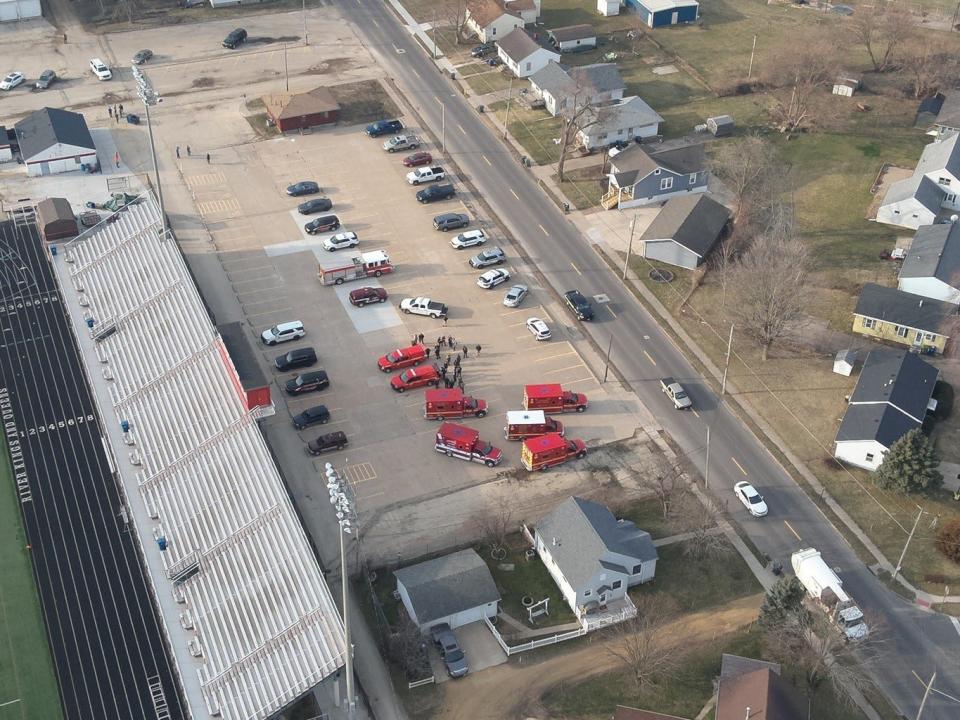Iowa lawmakers advance bill to combat fake 'swatting' calls. Here's how it would work:
Iowa lawmakers are considering increasing penalties for filing false reports to law enforcement — known as swatting — after an increase in incidents last year.
Last spring, 30 school buildings around Iowa suffered a wave of swatting calls with fake threats of school shootings, prompting school lockdowns, cancelled classes and massive law enforcement responses before officials were able to determine that the calls were hoaxes.
A three-member Iowa House subcommittee unanimously advanced House Study Bill 545 Wednesday, passing it on to the full House Public Safety Committee.
What would the new swatting bill do?
The bill would make it a class D felony, punishable by up to five years in prison, to report false information to a law enforcement agency, fire department or public safety agency if the person reporting the information knows it is false or if they report a fake crime involving a violent felony, intimidation with a dangerous weapon, an act of terrorism or possession of biological agents or diseases.
If the false report results in someone being seriously injured or killed, the person who made the report would be subject to a class C felony, punishable by up to 10 years in prison.
Other false reports to law enforcement would continue to be punished as either a simple misdemeanor, punishable by up to 30 days in jail, or a serious misdemeanor, which carries a one-year sentence. That's the same penalty that exists in current law.

Why was the swatting bill filed?
Josie Wagler, a legislative liaison for the Iowa Department of Public Safety, said the agency filed the bill because of an increase in swatting incidents. In 2021, the department recorded four swatting calls, she said, but in the 2022-23 school year there were 39 calls.
"Our purpose really is to just try and deter bad actors from tying up emergency resources and trying to keep the public and emergency response agencies safe," she said.
Will the bill help stop swatting calls?
Rep. Brian Meyer, D-Des Moines, voted to advance the bill. But he said the perpetrators of swatting calls are often hard to find because they can use internet phone numbers and obscure where they're calling from.
"I still think it’s going to be very difficult to find these people, but I’m very supportive of the bill," he said.
Stephen Gruber-Miller covers the Iowa Statehouse and politics for the Register. He can be reached by email at sgrubermil@registermedia.com or by phone at 515-284-8169. Follow him on Twitter at @sgrubermiller.
This article originally appeared on Des Moines Register: House bill would require higher penalties for fake law enforcement calls

